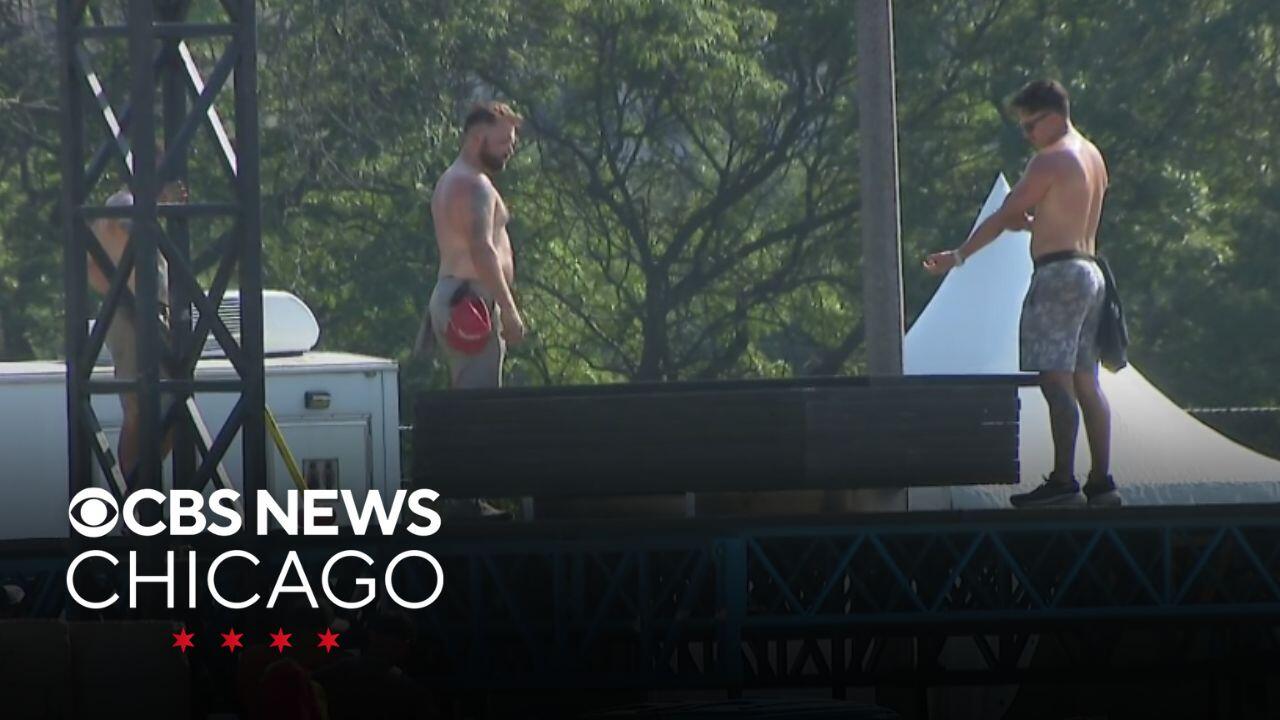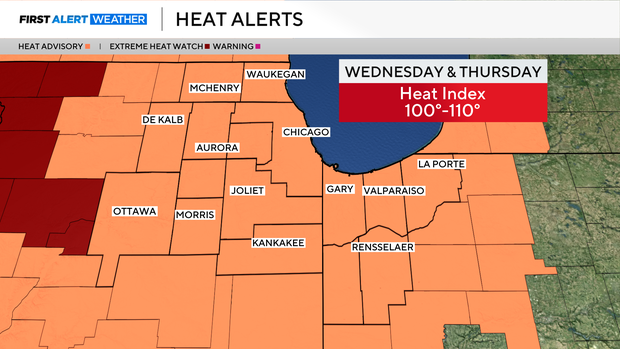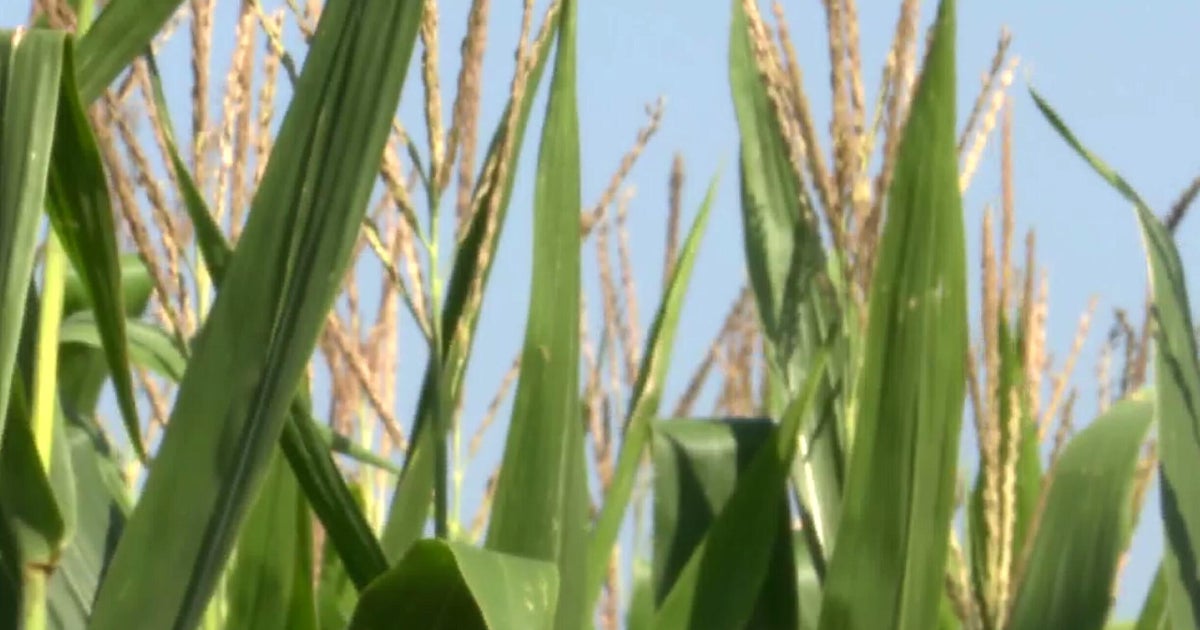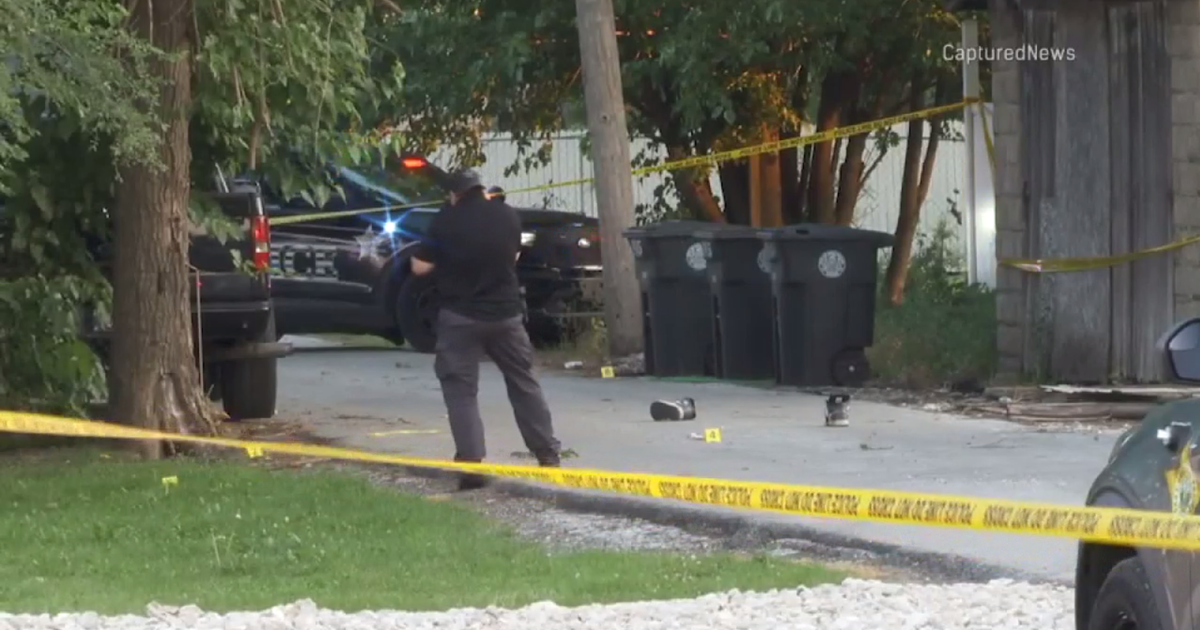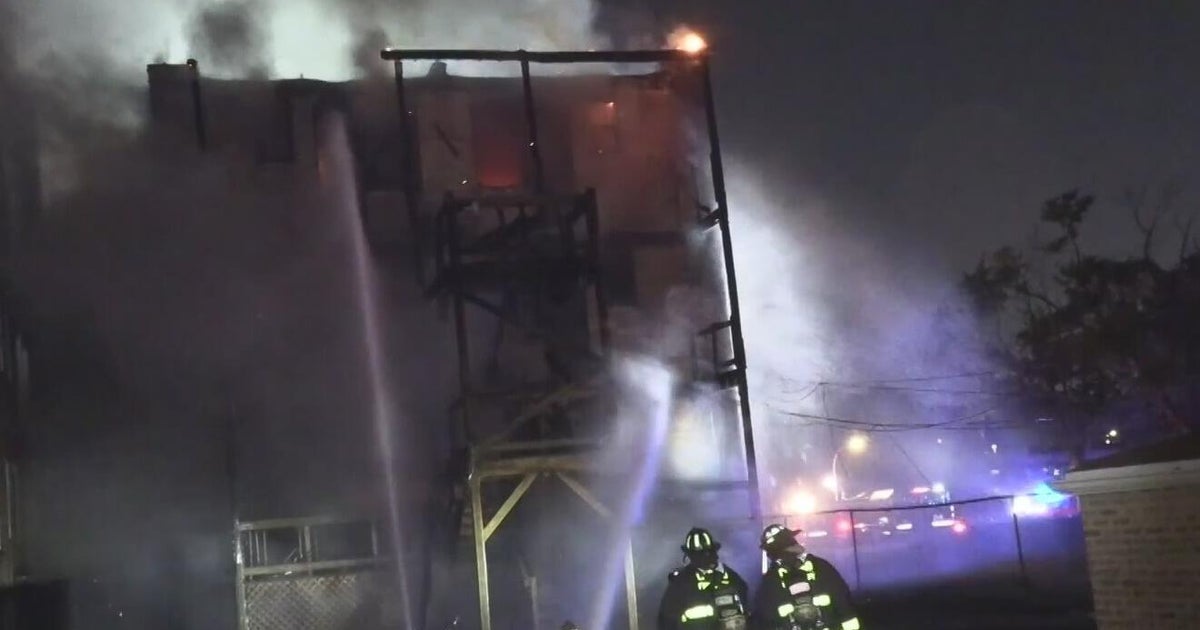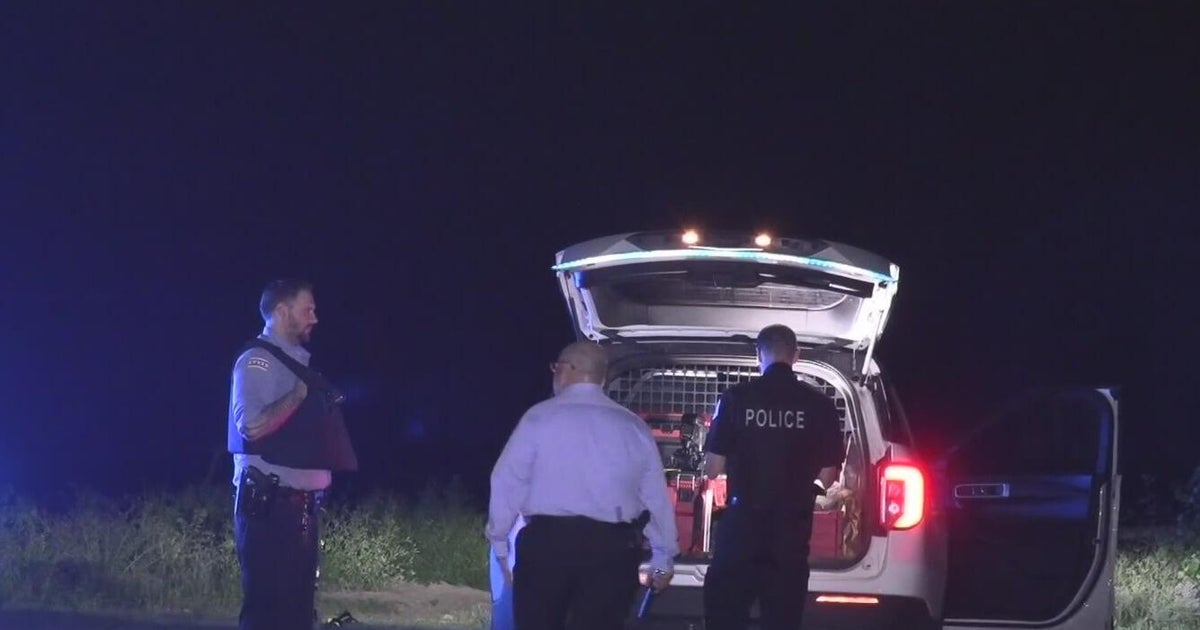First responders issue warning with extreme heat returning to Chicago
A dangerous heat wave is expected to scorch Chicago beginning Wednesday.
A heat advisory has been issued from 10 a.m. Wednesday to 10 p.m. Thursday for the greater Chicago area for heat indices of 100 to 110 degrees. Conditions will be unpleasant, uncomfortable, and possibly dangerous.
Dr. Trevor Lewis, chair of emergency medicine at Cook County Health, advised that anyone going out in extreme heat should drink 8 to 12 ounces of water before going out, and replenish with 6 to 8 ounces more every 20 minutes.
Lewis also advised wearing light-colored clothing, as it reflects the sun, while dark-colored clothing absorbs heat.
Lewis emphasized the risks of heat exhaustion and heat stroke. With heat exhaustion, one may feel dizzy and nauseated, suffer a headache, and sweat profusely.
"If this happens, you want to try to remove yourself from the heat or the sun, and start hydrating, seek a cooler environment," Lewis said.
Heat stroke is more dangerous. With heat stroke, the body stops sweating, skin may become hot and dry, and people may become confused and suffer episodes of passing out or difficulty walking.
"That's a true emergency," Lewis said. "You need to seek medical help immediately."
Keeping shades closed and finding shelter are also advised.
"That humidity really impairs our body's normal mechanisms," Lewis said.
Even staying outside somewhere refreshing like Buckingham Fountain, where plenty of people were enjoying the views and sweet treats Tuesday, could be dangerous on extremely hot days.
"That concrete is reflecting all that heat," said Chicago Fire Department 2nd District Chief Robert Jurewicz. "Your body's taking it in."
"If you think your pet might be suffering from heat stroke, get them to a cool area, offer them some water, and get your pet to a veterinarian immediately," said Celene Mielcarek, head of program operations at PAWS. "It's not something that you want to wait and see."
PAWS also wants to remind pet owners never to leave pets in the car, and to try to walk them early and the morning and at night and keep them inside.
First responders take extra precautions
City agencies are opening up cooling centers on Wednesday, and first responders are adding extra ambulances.
"They just have to understand, they can't do what they used to do — especially us older people," said Jurewicz.
Jurewicz said the most calls the Fire Department responds to on hot days involve the young and old.
The CFD has 80 surge ambulances, but these are brought out for large events such as Lollapalooza and extreme weather events like hot scorching days.
The CFD is also deploying extra engines.
If firefighters are on a call and they need relief from the heat, they can be taken out of service faster.
"We definitely have our rehabs, getting ready to go, in case we have a fire," Jurewicz said. "Even just a small fire, these guys get exhausted their body temperatures go up — sometimes five to six degrees — and that's a lot."
This summer, the Chicago aera has already suffered through one heat wave with several consecutive days of above-average temperatures to go with it.
Kaila Lariviere, the manager of emergency management services for the Chicago Office of Emergency Management and Communications, said the office has been checking in with its coordinated partners.
"Whether that's Department of Family Support Services, library, Salvation Army, Red Cross, we're going to start touching basis with them and say, you know, are we ready to go in case we need to call you to get some resources in," said Lariviere. "We really are that resource locator, that finder."
Last week marked 30 years since the deadly heat wave from the summer of 1995, which claimed the lives of 739 people in Chicago alone.
Jurewicz said he was new on the job at the time, and it was heartbreaking to see.
"Educate people," Jurewicz said. "Like I said, the air conditioning, the water, the loose clothing. Get in the shade. Jump in the water once in a while. We just try to enforce that on people so we don't have a repeat of back then."
Francisco Velez, director of the Chicago OEMC, said the office has been monitoring the National Weather Center. He said the last time Chicago has seen a heat index between 105 and 110 was in 1934.
Velez recommends drinking plenty of water, staying inside, closing shades, and finding shelter.
"We're also working with the Department of Family Services for the 288 cooling centers that we have across the Chicagoland area," Velez said.
Meanwhile, some people have no choice but to work in the extreme temperatures over the next few days — including workers setting up Lollapalooza in Grant Park.
Those workers said on Wednesday, they are already planning to drink lots of water, take breaks often, and have more paramedics on site. But they will nevertheless be out bearing the elements as they get Grant Park set up in time for the festival, which runs from July 31 to August 3.
The Chicago Public Schools are also taking action — moving all their summer programming, including sports practice, inside.

